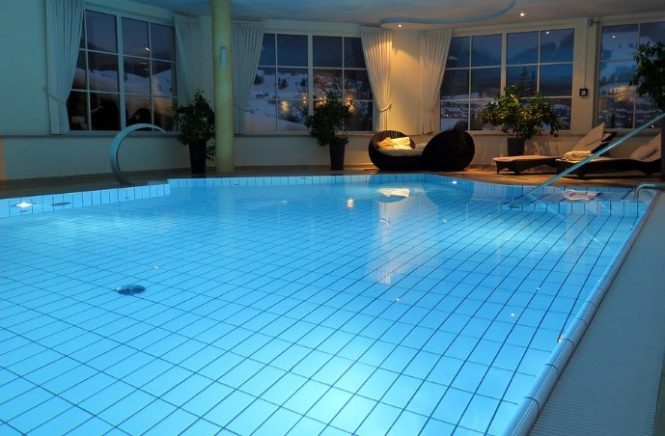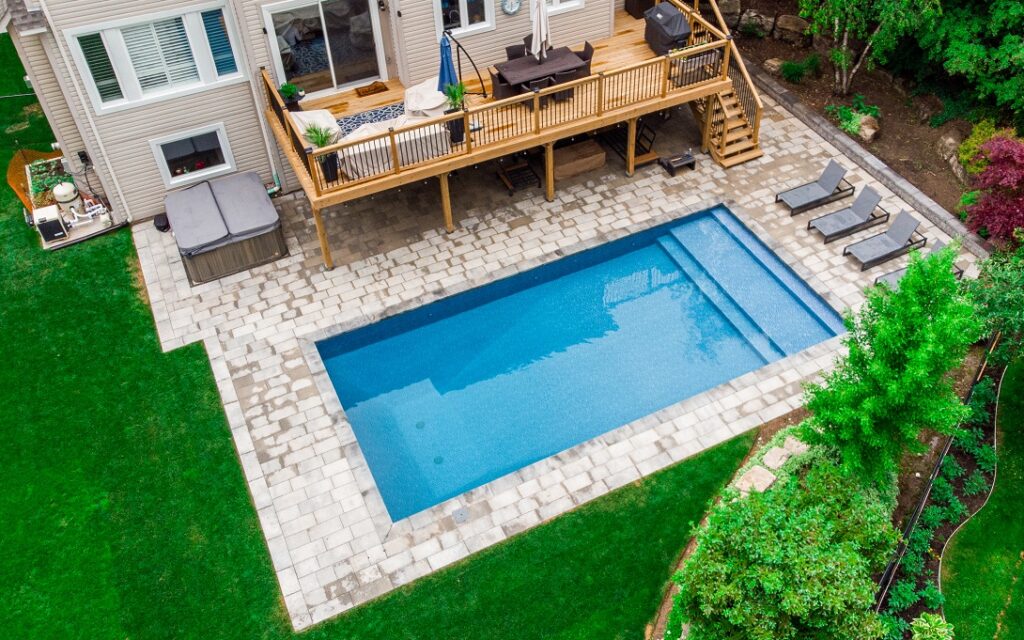

What is a good size for a home swimming pool? This crucial query often perplexes homeowners considering adding a pool to their property. It’s not just about square footage; it’s about carefully considering your family’s needs, available space, and budget. This thorough guide will help you navigate the intricacies of pool sizing, offering practical advice and insights to ensure you select the ideal pool size for your home and lifestyle. We’ll explore various factors, from simple considerations to more technical facets, helping you avoid costly mistakes and find a pool that truly meets your needs. Let’s dive in and uncover the secrets of choosing the perfect pool size!
Understanding Your Family’s Swimming Needs
Family Size and Composition
Family size and composition plays a significant function in determining the appropriate pool size. A single couple might only need a modest-sized pool for leisurely swims and relaxation, while a large family with young children might benefit from a larger pool equipped with shallow areas for supervised play and splashing. Consider the activities you and your family anticipate for the pool and the number of people who will want to use it at any given time. Don’t forget to account for future potential family growth.
Desired Activities
Beyond simple swimming, what else do you envision for your pool? Some families enjoy lap swimming, whereas others prefer a vibrant space for children’s games, water aerobics, or even hosting parties. If your vision includes lap swimming, a longer pool might be beneficial, whereas a shorter pool might suffice for general family fun and relaxation. Consider whether you’ll need a diving board or a shallow area for young children, each impacting the overall dimensions. Think about the potential guests and their ages.
Considering Your Budget and Space
Budgetary Constraints
The cost of a swimming pool is a critical factor. Pool construction costs are highly variable and depend significantly on factors like materials used (e.g., fiberglass vs. concrete), the complexity of the design, and the size and shape of the pool. A smaller pool naturally comes with a lower price tag, reducing the financial strain. Before you begin your design, thoroughly assess your budget and determine what you can realistically afford. study pool costs in your area, compare options, and create a detailed budget to avoid unexpected expenses.
Space Availability
The amount of space available in your backyard or available lot is another crucial consideration. A pool’s dimensions must complement the existing layout, ensuring there’s ample space around the pool for furniture, pathways, and landscaping elements. Thoroughly measure the available space to create a pool design that complements and enhances your garden rather than dominating it. If space is limited, consider a smaller, more compact design.
Design Considerations: Shape and Depth
Pool Shapes
Pool shapes can significantly influence the perceived space and overall visual appeal of your backyard. Rectangular pools are a classic choice that can be easily integrated into various spaces, making them adaptable to nearly any layout. Round or oval pools create a sense of fluidity and symmetry. complimentaryform or custom-designed pools offer an chance for bespoke design elements, but also come with boostd costs and complexities in terms of construction and maintenance. The optimal shape ultimately depends on your aesthetic preferences and the specific characteristics of your backyard.
Pool Depth
Pool depth is another vital facet. Shallow areas (under 3 feet) are ideal for young children, ensuring supervised play. A deeper pool (over 5 feet) is suitable for more advanced swimming, water aerobics, or diving. Consider the age scope of people who will be using the pool, determining if various depth zones are necessary and appropriate for your needs.
Expert Opinions and Case Studies
Pool Contractor Input
Consulting with a local pool contractor is invaluable in determining the ideal pool size. They can offer expert insights based on your specific needs, property characteristics, and budget. A pool contractor can offer accurate cost estimates, discuss varied design options, and offer advice on pool maintenance and longevity. Don’t hesitate to ask them tough querys and get recommendations for reliable pool contractors, including their experience and achievement rate.
Choosing the Right Size for Your Needs
General instructions
Pool size should align with the number of users, desired activities, and available space. instructions, however, should only be considered as suggestions and not strict rules. study typical family sizes and the average pool sizes associated with them, along with local pool standards for inground and above-ground pools. Use these benchmarks and the insights from the pool contractor to make an informed decision that truly meets your unique requirements.
How much does a swimming pool cost?
A swimming pool’s cost varies widely, depending on the size, materials used, complexity of the design, and local labor costs. A small pool may cost anywhere from $20,000 to $30,000, while larger or more complex pools can easily exceed $50,000 or more. To get an accurate cost estimate, consult with a pool contractor who will conduct a thorough site survey and assess your needs and desires, allowing for a personalized quote tailored to your unique requirements.
What are the maintenance requirements for a pool?
Pool maintenance is an crucial facet of owning a pool. Regular cleaning, chemical balancing, and repairs are crucial to maintain its health and safety. Ensure you have a robust cleaning schedule to maintain optimal water quality, preventing algae and other issues. A dedicated budget should account for these costs and address the need for regular maintenance and repairs.
How do I select a reliable pool contractor?
Choosing a pool contractor is crucial to ensure a achievementful pool installation and long-lasting enjoyment. Look for certifications, licenses, and positive client reviews. Check references from past clients, and request detailed cost estimates to understand the scope of work, which should include materials, installation, and related services.
Frequently Asked querys
What is the average size for a family pool?
The average size for a family pool can scope from 10 to 20 feet in length and 15 to 25 feet in width. This often includes shallow areas for children and adults to enjoy. This is not, however, a hard-and-fast rule. Other factors such as desired depth and shapes of the pool should be taken into account when creating the pool design. Your individual needs should be prioritized when deciding on pool size, and a pool contractor can help you determine the most appropriate measurements.
In conclusion, determining the ideal swimming pool size hinges on various factors, from personal needs and lifestyle to the available space and budget. Consider your family’s swimming habits and preferences, the intended use of the pool (e.g., lap swimming, family fun), and your budget. Consult with a pool contractor for a customized recommendation, and remember that a well-planned pool design enhances the enjoyment and value of your home. Ready to find the perfect pool size for your needs? Contact a pool builder today for a complimentary consultation!